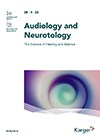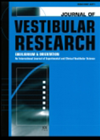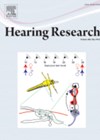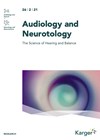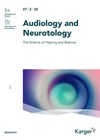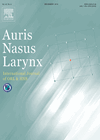
Journal Reviews
Migraine medication and benign paroxysmal positional vertigo (BPPV)
BPPV is a very common form of dizziness (lifetime prevalence 2.4%) and has been noted to have an association with migraine. The cause of otoconia displacement in BPPV is often unclear. A vascular mechanism theory has been postulated in varying...
Paroxysmal downbeating nystagmus and proton pump inhibitors
This case report highlights the effect of long-term use of proton pump inhibitors on the vestibular system. The authors reported a case of a 70-year-old woman who was admitted with delirium, ataxia, slurred speech and slowness of thought. She had...
Vestibular implantation: are we there yet?
The objectives of this review article were to ascertain, through a systematic literature review, device design, surgical approaches, objective and subjective outcomes as well as limitations of vestibular implantation (VI). Following an extensive systematic search using PRISMA guidelines, 21 studies...
Epley manoeuvre angles
Posterior canal benign paroxysmal positional vertigo (PC-BPPV) is a common vestibular cause of dizziness regularly encountered in the outpatient clinic. The condition is often diagnosed with a positive Dix-Hallpike manoeuvre (DHM) – turning the patient’s head 45 degrees to the...
Ramsey Hunt causes more widespread vestibular dysfunction that other causes of acute peripheral vestibulopathy
The extent of semicircular canal dysfunction in different conditions causing acute vestibular syndrome (AS) has not been widely studied. The authors share their findings in a retrospective study of patients presenting with AVS in three conditions: Ramsay Hunt syndrome (RHSD),...
Not to be mis-underestimated
It is a very rare occurrence to find a paper looking at NF2 and the auditory system. There seems to only be a couple on NF2 prevalence in the population, so this is unsurprising. As far as I can recall...
Virtual vestibular rehabilitation (VR) is as effective as in-person VR
The effectiveness of vestibular rehabilitation (VR) for patients with several vestibular disorders is well established. Access for in-person clinic-based VR is however patchy and limited. To widen access, offering VR via virtual platforms is increasingly being adopted. The authors conducted...
Current AI audiology knowledge
Artificial intelligence (AI) tools are becoming increasingly popular and can be utilised by patients, healthcare professionals and students. The performance of chatbots can be variable between different AIs and, indeed, different topics. There is no current consensus for the best...
Audiometric and Quality of Life comparison between Bonebridge® and Osia®
Bone conduction implants are an alternative to hearing aids for varying reasons. Both Bonebridge® and Osia® are transcutaneous devices maintaining intact skin, establishing a connection between the implanted device and external processor through a magnetic system. Both are described as...
Bell’s palsy incidence in Korean population
Bell’s palsy is an acute idiopathic paresis or paralysis of the peripheral facial nerve. It is the most common cause of facial nerve palsy with a reported incidence ranging from 11.5–55.3 per 100,000. The aetiology remains unclear. Several studies have...
Persistent postural-perceptual dizziness: a functional neuro-otologic disorder
Persistent postural-perceptual dizziness (PPPD) is a neuro-otological disorder that is the most common cause of chronic vestibular syndrome. It is not a purely structural or psychiatric disease but a functional disorder. The authors reviewed the literature to summarise the diagnostic...
Post-Covid dizziness disability
An estimated 750 million people worldwide were affected by Covid-19. A significant proportion have been left with long-term symptoms for which the World Health Organization has proposed the term ‘post-Covid condition’ (PCC). Dizziness is but one of the symptoms. Dizziness...



